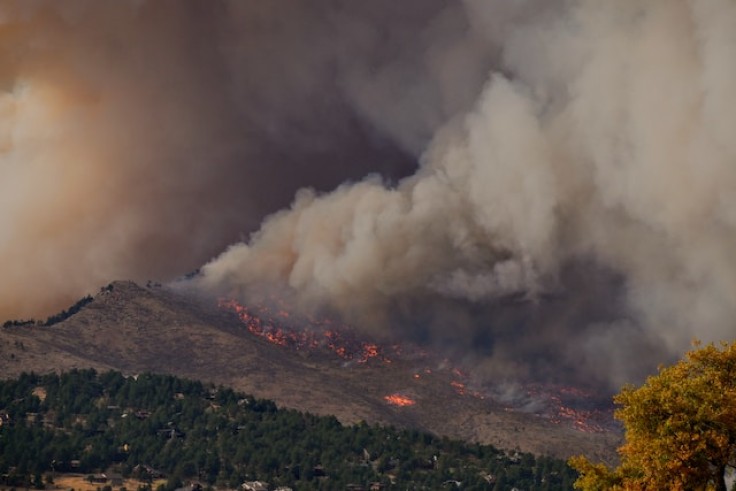
Canadian wildfire smoke continues to engulf the United States, causing air quality concerns and triggering alerts across several states on Sunday. Approximately 60 million residents in 11 states, spanning the northern Plains, Midwest, and Great Lakes regions, are grappling with reduced visibility and poor air quality, including major cities such as Chicago, Detroit, St. Louis, Cedar Rapids, and Cleveland.
According to CNN, a significant portion of the northern Plains, stretching from Montana to Illinois, experienced an "unhealthy" Air Quality Index reading of Level 4 out of 6 on Sunday. Despite a projected decline in smoke concentration by Monday, the National Weather Service's Weather Prediction Center warns that lingering smoke may still contribute to unhealthy air quality, particularly for sensitive groups, in certain regions during the upcoming week, per USA Today.
Northern Plains to Great Lakes: States Warned of Poor Air Quality as Canadian Wildfire Smoke Persists
Driven by prevailing winds, the smoke plume is expected to drift eastward, casting a smoky haze over the Northeast early in the week. Photographs taken at the NWS Central Illinois facility in Lincoln, Illinois, reveal a stark contrast between clear skies on Saturday and the visible presence of wildfire smoke on Sunday.
The origin of this smoke plume can be traced back to nearly 400 fires that have ignited in the Canadian province of British Columbia over the past week.According to the British Columbia Wildfire Service, approximately 51,000 lightning strikes caused by thunderstorms started almost half of these fires, ABC News reported.
Unfortunately, some of these thunderstorms were "dry" and provided minimal rainfall, exacerbating the fire situation in a province grappling with severe drought conditions.
Tragically, Canadian authorities announced the loss of a second firefighter on Sunday, further highlighting the risks faced by those battling the wildfires. The Northwest Territories of Canada expressed their sorrow over the passing of a firefighter from Fort Liard who sustained fatal injuries while combating a wildfire in the Fort Liard District on Saturday. This news follows the confirmation of another firefighter's death near Revelstoke, a town in southeastern British Columbia, just days prior.
Reacting to the devastating loss, Canadian Prime Minister Justin Trudeau expressed his condolences via Twitter, emphasizing the nation's solidarity with the fallen firefighter's family, friends, and fellow comrades in service.
Battle Against Canadian Wildfires Intensifies as Millions of US Residents Face Smoke Hazards
The smoke emanating from the wildfires poses significant health risks. Wildfire smoke contains fine particles known as PM 2.5, which can infiltrate the respiratory system and bloodstream upon inhalation. Common effects include breathing difficulties and eye and throat irritation, while long-term exposure has been linked to severe health issues such as lung cancer, according to the US Centers for Disease Control and Prevention.
With Canada experiencing its worst fire season on record, large parts of the United States remain susceptible to smoke exposure due to ongoing fire activity and weather patterns. So far this year, over 24 million acres have succumbed to wildfires in Canada, an area roughly equivalent to the size of Indiana. British Columbia alone has witnessed the ignition of over 1,000 fires since April, scorching nearly three times the land compared to the average of the past decade.
As communities on both sides of the border grapple with the devastating impacts of these wildfires, efforts to mitigate the fires and support affected regions continue. Authorities and residents remain vigilant in their response to this ongoing crisis, striving to protect lives and limit the far-reaching consequences of these destructive infernos.